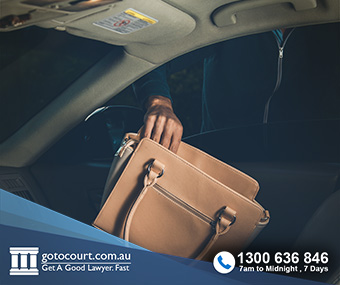Firearms Offences in SA
There are many firearms offences in South Australia, some of which carry severe maximum penalties. To possess, own or use a firearm anywhere in the state, you have to have obtained a licence and your firearm must have been registered. Eligibility criteria for a licence are set out in the Firearms Act 1977. This article deals with firearms offences in South Australia.
Who is eligible to have a firearm?
The categories of person who are eligible to obtain a firearm include:
- sporting shooters who are members of registered clubs
- recreational shooters with permission from landowners
- people needing a firearm for their work, such as farmers
- security employees and professional sporting shooters
- genuine collectors.
Firearm licences
A person must be over 18 years old to obtain a licence, or at least 15 years old if you are directly involved in farming.
A person must have the licence with them whenever they have a firearm in your possession. The penalty for failing to do so is a fine of up to $5,000.
To obtain a licence, a person must be ‘fit and proper’, which means they must have:
- no physical or mental condition that makes it dangerous for you to have firearm(s)
- no convictions for violence in any country anywhere
- no convictions for certain firearms offences in Australia
- you have not been subject to an Australian Domestic Violence or other Intervention Order.
Doctors and firearms clubs must inform the Registrar if they believe a person has a physical or mental illness or pose a threat to anyone’s safety. Clubs must expel a person if their behaviour threatens anyone’s safety or if a prohibition order relating to firearms applies. A number of firearms offences in SA relate to registration and storage of firearms.
Storing firearms
Firearms must be kept securely. The maximum penalty for failing to store them correctly is a fine of $2,500.
Firearms must be:
- securely attached to, and locked on, part of a building, or
- locked in a cabinet or safe made of hardwood or steel which is securely attached to a building, or
- kept in a locked steel and concrete room.
Ammunition must be stored separately to any firearms in its own locked container.
Possession of firearms
Firearms offences in SA relating to possession include simply having a firearm in your home or in a vehicle. Firearms are grouped into five categories. An imitation firearm is considered to be a firearm of whatever class it resembles.
Unregistered firearms
It’s an offence to possess unregistered firearms. The maximum penalty:
- for a firearm classified as ‘prescribed’, or for a firearm in class C, D or H – $10,000 or two years imprisonment.
- otherwise – $5,000 or 1 year in prison.
Unauthorised firearms
A person with an unauthorised firearm listed in class C, D or H faces a maximum penalty of seven years in prison and/or $35,000 in fines. For other firearms, it is four years in prison and/or $20,000 in fines. For a prescribed firearm it is 10 years imprisonment and/or $50,000 in fines.
Silences and accessories
It’s an offence to possess silencers, certain parts of firearms, and firearm accessories. The maximum penalty is a $75,000 fine or 15 years imprisonment if the prohibited accessory is actually fitted to the firearm.
Prescribed firearms
Firearms that are prescribed firearms under the legislation are:
- those which are automatic
- those that have barrel(s) up to 330 mm (not pistols, air rifles, air guns, power heads)
- shotguns with barrel(s) up to 450 mm
- air rifles/air guns with barrel(s) up to 250 mm, an overall length up to 750 mm (not pistols or power heads), and that can be reduced to under 750 mm and be capable of being fired (not pistols)
- those that can fire projectiles containing tear gas, other substances which cause nausea, or poisons
- home-made firearms
- those that look like other objects, and
- certain military firearms.
Firearms Prohibition Orders
A serving member of the police force can issue an interim Firearms Prohibition Order if they hold a reasonable suspicion that a person:
- possess a firearm that would likely result in unwarranted danger to anyone or anything, or
- aren’t considered ‘fit and proper’.
An interim order lasts for 28 days,
The Police Commissioner can issue an order if:
- possessing a firearm would likely result in unwarranted danger to anyone or anything, or
- you aren’t considered ‘fit and proper’, and
- there is public interest in prohibiting you from possessing or owning one.
Effect of a Firearms Prohibition Order
A person can be detained for up to two hours to allow time for an order to be prepared and served. You will be disqualified from obtaining or holding any firearms-related permit or licence, and from having or using firearms, parts of firearms, or ammunition.
Any firearms in your possession must be surrendered and you can’t live in any place where firearms are stored or used.
You must tell each adult you live with that you are subject to a court order prohibiting you from doing using firearms. If you don’t do this, you can be penalised with a fine of up to $10,000 or up to two years imprisonment.
The maximum penalty for acquisition, use or possession of a firearm while subject to a Prohibition Order is:
- for a firearm, a $75,000 fine or 15 years in prison
- for parts or ammunition, up to $35,000 or seven years in prison.
For failing to surrender a firearm, parts of firearms, or ammunition, the maximum penalty is:
- for firearms, $10,000 or two years in prison,
- for parts or for ammunition, up to $20,000 or four years in prison.
Going to a firearms range, club or similar could mean a fine of $10,000 or up to two years in prison.
Living at a place where firearms are present, or where there are parts or ammunition, results in a maximum penalty of:
- for firearms, a $50,000 fine or 10 years in prison,
- for parts or ammunition, a fine of up to $20,000 or as much as four years in prison.
In relation to firearms offences in South Australia, the police can:
- demand information from anyone they suspect might possess, or has possessed in the past, a firearm or any ammunition
- demand that weapons are produced for inspection
- seize any firearms that may be unsafe, or that are prohibited or unregistered
- seize weapons if you aren’t considered fit or proper, there is unwarranted danger to anyone or anything, or an order of the court is in place
- hold you while they conduct a search of your person, property and belongings for firearms, mechanisms, fittings, ammunition, and the licences to match
- detain or hold any vehicle (including aircraft or a vessel) or enter a property to undertake a search.
Obstructing or resisting any police officer exercising any such powers carries a maximum penalty of $10,000 or up to two years in prison. It’s an offence in SA to discharge or fire a firearm:
- where you intend to injure, frighten or annoy anyone. The maximum penalty is eight years in prison.
- if you are being reckless in terms of whether it may injure, frighten or annoy anyone. This could mean a maximum penalty of five years in prison.
- intending to damage property, the maximum penalty for which is five years in prison.
- if you are being reckless in terms of whether it might damage property. The maximum penalty is three years in prison.
If you require legal advice or representation in any legal matter, please contact Go To Court Lawyers.






